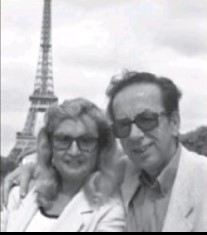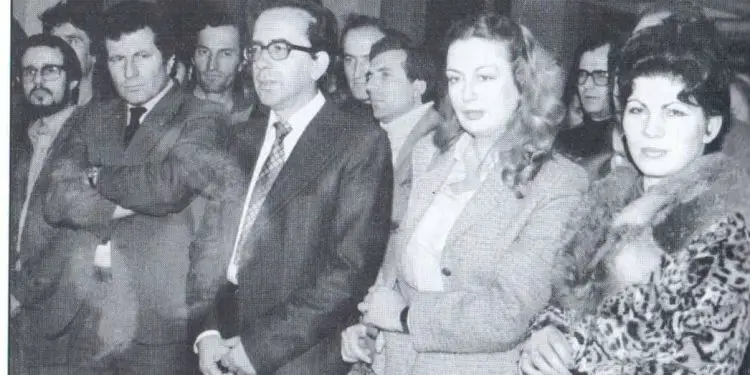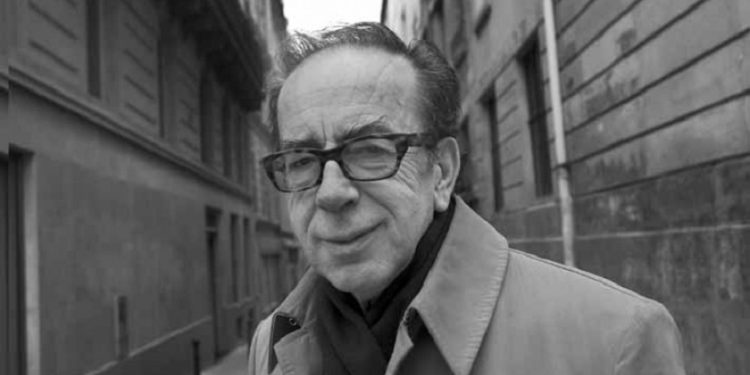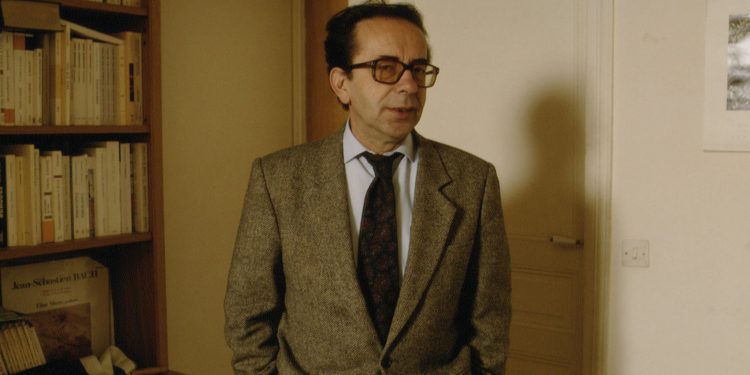Memorie.al / Ismail Kadare, Albania’s best-known writer, says he sought refuge in France a month ago, because “my desertion will help the democratization of my country, more than any other action I could take in Albania.” . Albania is the last country in Europe ruled by communists and Ismail Kadare, whose novels and poems have been published in about 1 million copies, has been a national figure here, perhaps compared to the popularity of Mark Twain in the USA . His work has been translated into 15 languages of the world.
In response to the requests, the 54-year-old writer, in the first interview given since he escaped, said that he was under threat from the Sigurimi, the ubiquitous secret police in Albania.
According to him, “this, together with his disappointment, about the government’s brutal treatment of some of the 5,000 asylum seekers from foreign embassies in Tirana, in the summer of this year, pushed him to leave.
“In the case of the democratization process in Albania, the step of change is a matter of life and death”, he says, referring to President Ramiz Alia’s program seven months ago, for measured political and economic change.
“If there is any doubt that accelerating such processes will cause concern and anarchy and, therefore, harm to the Albanian nation, I will never raise this issue. But I am convinced that the truth is different. I am convinced that a slowdown in this direction would be fatal.
“I see the end of the dictatorship”
He also said that he is deeply confident that despite the Stalinist rule, for more than four decades, the 3.3 million Albanians will be able to shake off the dictatorship.
“This is a people of internal wealth,” he said, “with a strong tradition and a great sense of justice.” The Albanian people will be able to take the right step in this difficult time.
The evil has touched this country only on the surface and this is our common goal to save it”.
As in other literary works created under the communist dictatorship, Kadare’s work has been read in different ways and at different levels.
According to an expression of Arshi Pipa, an Albanian-American critic; “he has a double way of writing, allusive, analogical and often allegorical, emphasized by the situations they leave implied”.
Mr. Kadare has been like that, as a source of controversy in the country and in the literary cycle. His novels and poems have been criticized, but also praised by the tyrannical communist regime of Enver Hoxha, who died in 1985.
For example, his novel, “Chronicle in stone”, published in 1971, portrays in detail the life in Gjirokastër, the place where he and Enver Hoxha were born. Some of these avoidances examine Mr. Hoxha in a dim light.
But in “Dimri i Madh”, a novel about the severance of relations between Albania and the Soviet Union, in 1960, Kadare describes Enver Hoxha as a national hero for challenging Nikita S. Krushov, the Soviet leader at the time. . For this moment, he also wrote a long poem titled “The 60s”.
No “divorce”
Asked if he can revise his views on “Enver Hoxha’s era”, which he held for 40 years, Kadare answers: “I need to change. Moreover, I will never refute what I have written. I have no intention of throwing mud in the 50 years of my people’s life”.
He does not reject it, as he has benefited from the protection of Enver Hoxha. “For 20 years, they have been hitting me continuously. Do you believe that someone in Albania would have hit me, especially with such harsh methods, although he was the real defender of Enver Hoxha”?!
The writer says that if you were protected by him, it would be “the entire Albanian state”, thanks to the indisputable approval of his works.
Indeed, here it is difficult to find an Albanian family without Kadare’s books, and every foreign visitor is familiar with the volumes of his poems, considered as souvenirs.
“If it had been raised in the official dogma, my work would have been burned a long time ago,” he says. He points to an incident in 1975, when he presented the poem called “Red Pashalarlar”, which attacked the communist bureaucracy.
The essence of the poem managed to call for a revolt and the party bureaucracy managed to avoid its publication, forcing Mr. Kadare to self-criticize and not publish it for a long time. “Nobody came to my defense,” he said.
Earlier this year, he said that the secret police fabricated the wording, accusing him of having convicted an asylum seeker in Tirana. He called this a “despicable deception”.
“A final attack,” he continues, “were the direct and indirect threats from Sigurimi, who demanded that old debts be paid off.” Insurance has used the first evidence, for the repayment of these debts”.
Extinction list
Mr. Kadare was alluded here, that he was on the list of about 100 Albanian intellectuals, who would be arrested by the secret police. The existence of this list was rumored in Tirana last spring and summer, as an obvious attempt to scare intellectuals. The writer was reported to be included in this list.
Kadare knew that he had met and discussed his views on the future of Albania with President Alia, especially recently, in August, and that; “although my conversation with him was interrupted, I still believed that you could talk and have a dialogue with him”.
Also, he said that; it was obvious that Ali’s regime was not as brutal as Enver Hoxha’s. “The regime at the present moment is much less dictatorial”, he said.
The writer has already been in France for several weeks, where he announced that he requested political asylum on October 25. After 28 hours had passed since his departure, the official Albanian news agency dealt with the issue of his attitude “with an ugly act”, says Kadare, adding that they also reasoned; “as a service rendered to Albania’s enemies”.
In an interview, Mr. Kadare said: “Dogmatic officials have always done such things. Those who are also vigilant, protect criminals and opponents of Albania, like Stalin, are ready to throw away the nation’s values with the greatest pleasure. But now it’s too late. Their time is over.”
Other writers react
The immediate reactions from other well-known writers in Tirana were different; with pity, friendship and admiration for Kadare.
“I continue to have great respect for his work,” says Dritëro Agolli, a poet who heads the League of Writers and Artists of Albania. “I feel free” – says Neshat Tozaj, a writer, commenting: “I am still his friend”.
Since his escape, Kadare continues to remain isolated in his whereabouts, kept secret by his publisher in Paris. The interview questions were given to him in French through the publisher.
The answers were given in Albanian two weeks later. He said that his escape was figuratively “foreseen” last spring, in a poem titled “Insufficient Time”, recently published in Albania.
In it, he says that his “disappearance” is approaching, which he says in an interview: “Leaving from this world was the same as leaving the homeland.” The last stanza is:
“Persecuted to the last moment,
From stillness and being a tragic hostage.
Perhaps in an incomprehensible way,
I will leave everyone and escape”! Memorie.al
The article was published in the “New York Times, on December 6, 1990
The title is editorial
Prepared for publication, Albert Gjoka














